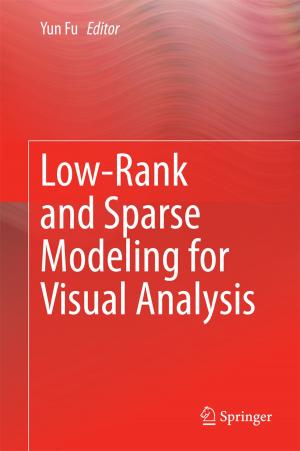Ovulation Stimulation with Gonadotropins
Nonfiction, Health & Well Being, Health, Ailments & Diseases, Genetic, Medical, Specialties, Gynecology & Obstetrics| Author: | Jean-Claude Emperaire | ISBN: | 9783319186542 |
| Publisher: | Springer International Publishing | Publication: | August 4, 2015 |
| Imprint: | Springer | Language: | English |
| Author: | Jean-Claude Emperaire |
| ISBN: | 9783319186542 |
| Publisher: | Springer International Publishing |
| Publication: | August 4, 2015 |
| Imprint: | Springer |
| Language: | English |
How does one learn to stimulate ovulation? Often by oneself, when there is no opportunity to benefit from a mentor’s experience. But options abound regarding the evaluation strategy, protocol design, gonadotropin preparations, posology, treatment duration, and when and how to trigger ovulation. Proper, safe stimulation requires critical anticipation of ovarian reactions.
There seems to be little evidence-based consensus in the field of ovarian stimulation. Though they all face the same situation, there seem to be nearly as many procedures as there are clinicians in the field; as a result, approaches may vary within a given fertility center or even in the same team. Even though efforts have been made to arrive at a general consensus, the basic guidelines are often reinterpreted according to individual inclinations; hence the need to turn to experience-based decisions.
This book is based on the author’s experience gathered over forty years and more than 30,000 cycles of classical and IVF ovulation stimulations, particularly the thousand most recent cycles that resulted in a clinical pregnancy. It is not intended as a “perfect solution”, as other approaches certainly remain valid. Rather, the book presents the author’s own analysis and insights gained from managing thousands of stimulation cycles.
How does one learn to stimulate ovulation? Often by oneself, when there is no opportunity to benefit from a mentor’s experience. But options abound regarding the evaluation strategy, protocol design, gonadotropin preparations, posology, treatment duration, and when and how to trigger ovulation. Proper, safe stimulation requires critical anticipation of ovarian reactions.
There seems to be little evidence-based consensus in the field of ovarian stimulation. Though they all face the same situation, there seem to be nearly as many procedures as there are clinicians in the field; as a result, approaches may vary within a given fertility center or even in the same team. Even though efforts have been made to arrive at a general consensus, the basic guidelines are often reinterpreted according to individual inclinations; hence the need to turn to experience-based decisions.
This book is based on the author’s experience gathered over forty years and more than 30,000 cycles of classical and IVF ovulation stimulations, particularly the thousand most recent cycles that resulted in a clinical pregnancy. It is not intended as a “perfect solution”, as other approaches certainly remain valid. Rather, the book presents the author’s own analysis and insights gained from managing thousands of stimulation cycles.















